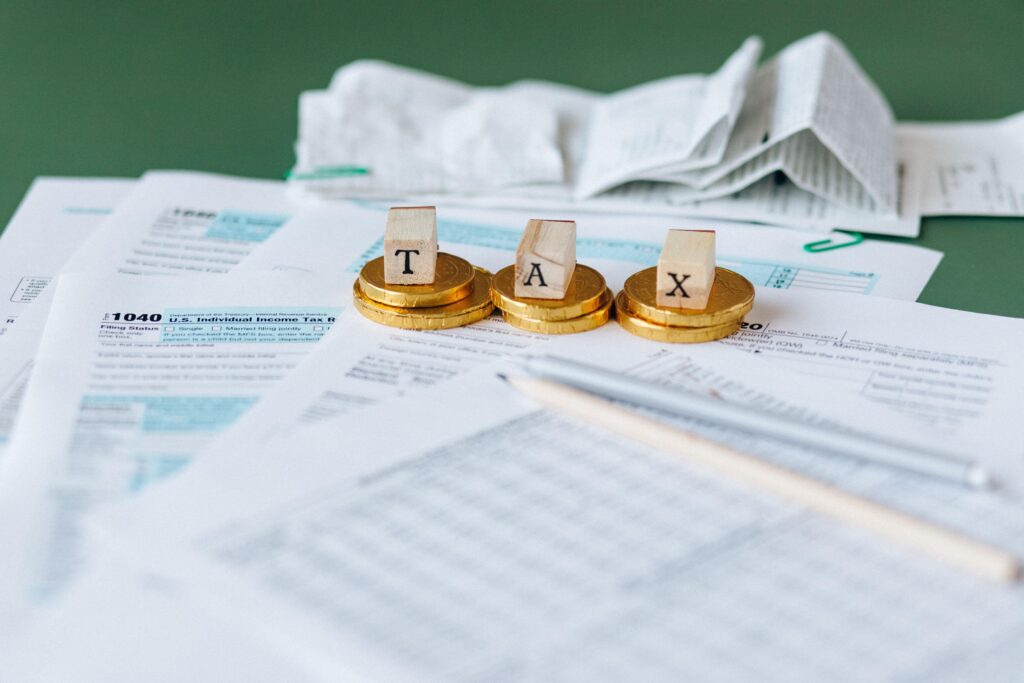
In the dynamic world of personal finance, understanding tax liability rebates is becoming increasingly crucial, especially as we step into 2024. These rebates play a pivotal role in the financial health of individuals and businesses alike. A liability rebate, in essence, acts as a mechanism for taxpayers to recover funds that they may have overpaid to the fiscal authority.
It’s a concept that intertwines with the broader subject of taxation, impacting how much money individuals can save or owe in a given financial year.
Table of Contents
Definition of Tax Liability
A liability is the total amount of obligations that you are legally required to pay to the authorities based on your income, capital gains, or other taxable activities within a financial year. It is a critical component in personal and corporate finance, dictating the proportion of earnings that must be remitted to the government.
It impacts your disposable income and financial decision-making. In the UK, this liability is calculated after considering various allowances, deductions, and rates that apply to different income brackets and sources, making it a nuanced and essential part of financial literacy.
What Is a Tax Liability Rebate?

Source: freepik.com
A tax liability rebate, in simple terms, is a refund issued by the fiscal authority when you have paid more money than you are liable for in a given financial period.
This situation can arise due to various reasons such as overestimation of payments, tax deducted at source being higher than the actual liability, or eligible reliefs and allowances not being accounted for initially.
In a broader context, refunds contribute to financial fairness and can significantly impact an individual’s cash flow and budget planning, making them a critical aspect of financial management.
How Tax Liability Rebates Work
Tax liability rebates work through a process of reconciling the taxes paid with the actual amount owed. When you submit your return, the fiscal authority calculates your total liability based on your income, allowable expenses, and any reliefs or credits you’re entitled to.
If this calculation reveals that the amount of money paid exceeds the amount due, you become eligible for a rebate. This process underscores the importance of accurate financial filings and awareness of eligible deductions and credits, which can significantly affect the final fiscal position.
To learn more about how they work you should consult tax rebate specialists UK.
Types of Tax Liability Rebates
There are various types of tax liability rebates available, catering to different areas of taxation such as income, property ax, and capital gains tax. Each type is designed to address specific situations and encourage certain financial behaviours.
For example, income refunds might be available for individuals who have made excess pension contributions or donated to charities through Gift Aid.
Understanding the different types of rebates and their eligibility criteria is essential for taxpayers to maximise their financial benefits and make informed decisions about investments and expenditures.
Who Qualifies for Tax Liability Rebates

Source: housing.com
Eligibility for liability rebates in the UK is determined by a range of criteria, including income levels, employment status, and specific personal circumstances. For instance, individuals with incomes below certain thresholds may be eligible for rebates due to reduced liabilities.
Circumstances such as making contributions to pension schemes or investments in certain tax-efficient vehicles can also influence eligibility.
Understanding these criteria is vital for individuals to accurately assess their potential for refunds and ensure they are not overpaying financial obligations toward the authorities.
Importance of Claiming Rebates
Claiming available tax rebates is crucial as it can lead to significant financial benefits. These rebates can increase your disposable income, providing more funds for savings, investments, or essential expenses.
In some cases, rebates can also alter your financial planning, affecting decisions like investments and spending patterns. Not claiming eligible refunds effectively means paying more money than necessary, which can impact your financial wellbeing.
It’s essential for individuals to be proactive in understanding and claiming their refunds, as this can lead to substantial financial advantages.
Tax Liability Rebates vs. Deductions
It’s important to distinguish between tax liability rebates and deductions, as they serve different purposes in fiscal planning. The deductions reduce the amount of income subject to tax, thereby lowering your overall fiscal liability.
They are subtracted from your gross income before calculating the money owed. In contrast, rebates are refunds on taxes already paid when the total payments exceed the actual liability.
Understanding when to utilise deductions and when to seek refunds is key to optimising your financial strategy and ensuring you are not overpaying fiscal obligations.
How to Claim Tax Liability Rebates

Source: which.co.uk
Claiming tax liability rebates involves several steps, which can vary based on the type of rebate and individual circumstances. Typically, it starts with filing an accurate and complete fiscal return, including all relevant income, deductions, and credits.
It’s essential to maintain thorough records of your financial transactions and seek advice if necessary to ensure accuracy. Once the return is filed, the fiscal authority reviews it and determines if a rebate is due. In some cases, additional documentation or evidence may be required to support your claim.
Common Mistakes to Avoid
Several common mistakes can hinder the process of claiming tax liability rebates. These include inaccuracies in fiscal returns, overlooking eligible deductions or credits, and missing deadlines for filing returns.
Additionally, failing to keep proper financial records can make it challenging to substantiate claims for rebates. It’s essential to be diligent, informed, and proactive in your financial affairs to avoid these pitfalls and ensure you are receiving all the refunds you are entitled to.
Tax Liability Rebates in 2024
In 2024, there may be specific changes or updates in the realm of tax rebates, driven by evolving fiscal laws and economic conditions. Staying informed about these changes is crucial for taxpayers to understand their current entitlements and obligations.
The relevance of liability refunds in 2024 cannot be understated, as they play a significant role in individual and corporate finance, particularly in the context of economic recovery and changing fiscal policies.
Conclusion: Why Tax Liability Rebates Matter

Source: mintgenie.livemint.com
Tax liability rebates are a vital component of the taxation system, offering a fair mechanism to ensure taxpayers are not overburdened. They impact financial planning and decision-making, providing opportunities for increased savings and investments.
Understanding and claiming these refunds is crucial, particularly in the ever-evolving financial landscape of 2024.







